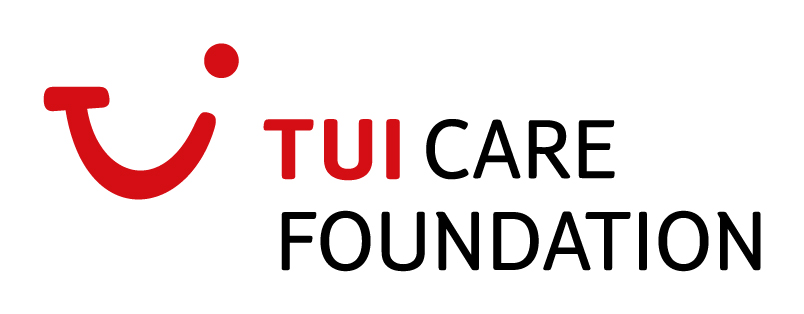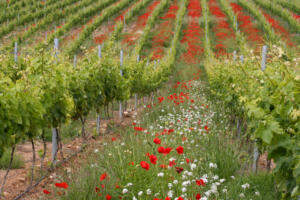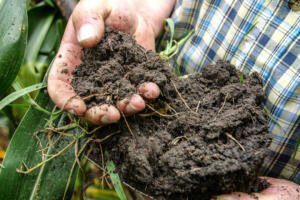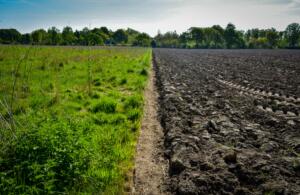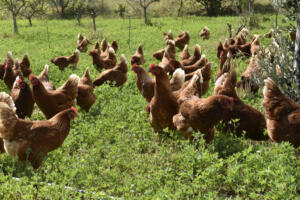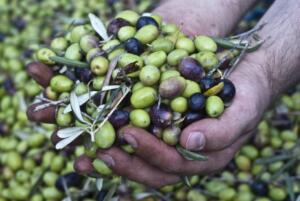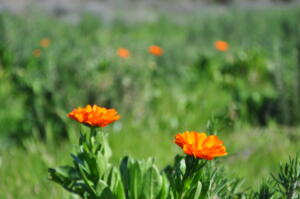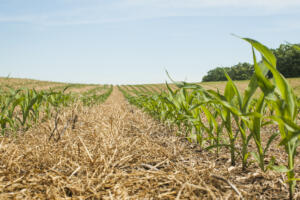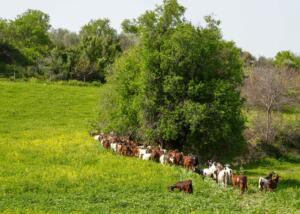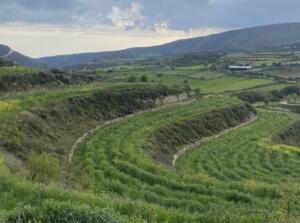
Grants
Regenerative Land Use
TUI FIELD TO FORK CYPRUS
Regenerative Agriculture for Sustainable Tourism
The challenge
The Mediterranean region faces critical challenges due to climate change, threatening the sustainability of its agricultural systems [1][2]. Intensive farming practices have led to the degradation of essential ecosystem services, resulting in accelerated soil erosion and declining soil health [3][4]. Regenerative Agriculture (RA) adopts a diversity of methods that offer a promising solution towards the increase of carbon sequestration, enhancement of biodiversity, soil erosion prevention, and overall mitigation of climate change [5]. While Europe’s goal is to increase the percentage of land under organic farming to 25% by 2030 [6], Cyprus is currently ranking low with 6.3% of its total agricultural area cultivated organically (2021) [7]. If the island is to reach its goal of 13% by 2030 [8], it really needs to step up efforts. On the other hand, RA techniques are at an infant stage in Cyprus without any mechanisms being established yet that facilitate the transition of new and existing farmers to RA methods. Furthermore, organic consumption in Cyprus is mostly based on imports, which leads to a high carbon footprint and is both unsustainable in terms of environmental impact and cost for consumers [9][10]. Interestingly enough, more than 3 million tourists arrive in Cyprus each summer [11], with more than half of them staying in hotels [11]. The tourism industry has a tremendous role to play in the promotion of more sustainable farming practices in Cyprus and aid in the transition of more Cypriot farmers to RA by increasing the awareness and demand for food produced in a regenerative organic way. To achieve such an ambitious goal, local farmers need specialized training not only to become equipped with the most appropriate eco-friendly RA techniques but also to learn how to create organic RA products that comply with local hotels’ needs and specifications. On the other hand, in the component of disadvantaged groups of people, the country is lagging behind in social inclusion mechanisms. Although people with disabilities could be integrated into low-risk/high-reward professions such as regenerative organic farming, they remain marginalized.
The Solution
The TUI Field to Fork (FTF) Cyprus project responds to the urgent need of adopting more sustainable agricultural practices in Cyprus. The project is implemented by the Cyprus Environment Foundation in collaboration with KES College and the Christos Stelios Ioannou Foundation (CSIF), with the support of the TUI Care Foundation. The project’s actions focus on the adoption of RA by promoting the application of farming practices that protect the environment, maintain and regenerate soil health, mitigate the impacts of climate change and contribute to carbon sequestration.
FTF Cyprus project aims to address and bridge the gaps in RA adoption in Cyprus by: (i) enabling training programs for local new and existing farmers, (ii) facilitating the creation of synergies between regeneratively farmed produce and the hospitality sector and (iii) incorporating people with disabilities within the program’s activities. Specifically, the project adopts the following actions to achieve its goals:
- Farmer Education and Support: It provides comprehensive training to new and existing local farmers, equipping them with the necessary knowledge and skills to implement RA methods.
- Partnerships between the primary and hospitality sectors: One of the program’s objectives is to encourage the creation of strong partnerships between local RA producers and hotels, reinforcing the ‘Farm to Fork’ concept. This collaboration allows hotels to source fresh, local RA products directly from the farmers, helping boost local economy, contributing to the natural environment, and offering authentic tourist experiences to their guests.
- Social Inclusion: It promotes the social inclusion of vulnerable groups in the agricultural sector by providing them with study scholarships and opportunities to participate in RA activities.
Project’s deliverables
- Establishment of an RA Demonstration-Training Center at CSIF, designed with permaculture principles and where KES College scholarship recipient students will work alongside CSIF trainees engaging in RA practices.
- Creation of a scholarship-based RA training program. Establish a scholarship-based RA training program in collaboration with KES College, offering 18 scholarships for new farmers. The program will focus on RA techniques and involve CSIF trainees.
- Open RA training program for both new and existing farmers. Conducting 12 ‘Open RA Training Sessions’ on CSIF premises and collaborating farms to educate new and existing farmers on RA techniques.
- Conduct ‘Farmers-Hotels Training Sessions’ to strengthen connections between farmers and the hospitality sector in Cyprus. ‘Farmers-Hotels Training’ will aim to connect farmers with hotel partners, focusing on sustainable food production and quality standards and leading to the co-creation of authentic guest experiences.
- Sustainably manage approximately 510,000 m² (51 ha) of land. Sustainable management of 51 hectares of land, including 50 hectares from the program’s participating organic farmers and 1 hectare from CSIF’s training facilities.
- Increase participation in rural tourism experiences. Promote rural tourism activities that involve hands-on engagement with sustainable farming practices by promoting authentic farm experiences.
Project Updates
-
- Join Our Regenerative Agriculture Training – Registration Open (Dec 2025 –June 2026): Register Now!
- 18 Annual Scholaships from Kes College
- Regenerative Agriculture Training Sessions January – June 2025
- Join Our Regenerative Agriculture Training – Registration Closed (Jan–June 2025): Register Now!
- Press Release: TUI Field to Fork Cyprus: Launch of the Regenerative Agriculture Training Program – Cyprus Environment Foundation
- TUI Field to Fork Cyprus Launch Event 28 March 2025 agenda in English , agenda in Greek.
- Press Release: TUI Field to Fork Cyprus Launch event, English, Greek
- TUI Field to Fork Cyprus Launch Event, Watch the interview featured on “Mesimeri kai Kati” (Sigma TV), broadcast on 28 March 2025:
Watch on Sigmalive - Podcast: Regenerative Roots – Redefining Agriculture in Cyprus Listen on Spotify | Watch on YouTube
- TUI Field to Fork featured at Mediterranean Parliamentary Conference on Agriculture:CEF at the Mediterranean parliamentary EU member states conference on agriculture – Cyprus Environment Foundation
- Sustainable Regenerative Agriculture at Christos Stelios Ioannou Foundation by Sigmalive: Watch on YouTube
- Featured Article by TUI Care Foundation, Learn how the TUI Field to Fork initiative is helping create thriving food systems in the Mediterranean, with a spotlight on Cyprus and Portugal. Read the article on tuicarefoundation.com
- 7 Annual Scholarships from KES College for the Academic year 2025-2026
- Meet our hotel partners
- Authentic experiences at partner hotels – October 2025
- New Cycle of regenerative agriculture training sessions 2025 – 2026. Read more here
A bit about the organizations
TUI Care Foundation – Supporter Organization. Building on the potential of tourism as a force for good, the TUI Care Foundation supports and initiates projects, which create new opportunities and contribute to thriving communities in tourism destinations all over the world. Connecting holidaymakers to good causes, it supports education and training opportunities for young people; drives the protection of natural habitats and the marine environment; and helps local communities to thrive sustainably and benefit from tourism. The TUI Care Foundation builds on strong partnerships with local and international organisations to create meaningful and long-lasting impact. The independent charitable organisation was founded by TUI, one of the world’s leading tourism businesses, and is based in the Netherlands.
Cyprus Environment Foundation – The Leading Organization. The Cyprus Environment Foundation (CEF) is a non-profit organisation that aims to protect and enhance the natural beauty, biodiversity and ecosystems of our beloved Cyprus. CEF is part of the Conservation Collective, a global network of 20 organisations supporting local environmental projects. The way CEF operates is simple: Raising funds from individuals, foundations and companies and channeling that money in the form of grants to local organisations and initiatives to support environmental projects that have high importance and impact on the island.
KES College – Partner Organization. Established in 1971, KES College is one of Cyprus’ oldest institutions for Tertiary Vocational Education. It offers 22 accredited vocational programs across five Schools, including Health Studies, Culinary Arts, Business, Journalism, and Environmental Studies. With around 500 students and 100 staff members, KES College is committed to delivering quality education that meets societal and market needs.
Christos Stelios Ioannou Foundation (CSIF) – Partner Organization. The Christos Stelios Ioannou Foundation (CSIF) in Cyprus is dedicated to supporting individuals with disabilities through vocational training, therapeutic programs, and social integration initiatives. CSIF also promotes sustainability by incorporating regenerative agriculture techniques on its agricultural land, making it a leader in social and environmental innovation in Cyprus.
Τοurythm– Collaborators. Tourythm is a consultancy based in Germany, specializing in sustainable tourism development, experience design, and stakeholder engagement. With a strong focus on cultural heritage, local communities, and regenerative practices, Tourythm works across sectors to create meaningful connections between travelers, destinations, and the people who shape them.
Maria Valegra– Collaborators. Maria Valerga is a sustainability expert in tourism with extensive experience in developing and implementing environmental and cultural projects across Europe. She specializes in sustainable destination planning, community engagement, and responsible tourism strategies.
References
- Alessandri, A., De Felice, M., Zeng, N., Mariotti, A., Pan, Y., Cherchi, A., Lee, J.Y., Wang, B., Ha, K.J., Ruti, P.,Artale, V., 2014. Robust assessment of the expansion and retreat of Mediterranean climate in the 21st century. Sci. Rep. 4, 4–11. https://doi.org/10.1038/srep07211
- Lionello, P., Scarascia, L., 2018. The relation between climate change in the Mediterranean region and global warming. Reg. Environ. Chang. 18, 1481–1493. https://doi.org/10.1007/s10113-018-1290-1
- Palm, C., Blanco-canqui, H., Declerck, F., Gatere, L., Grace, P., 2014. Agriculture,Ecosystems and Environment Conservation agriculture and ecosystem services : An overview. “Agriculture, Ecosyst. Environ. 187, 87–105. https://doi.org/10.1016/j.agee.2013.10.010
- Montanarella, L., Badraoui, M., Chude, V., Baptista Costa, I.D.S., Mamo, T., Yemefack, M., Singh Aulakh, M.,Yagi, K., Young Hong, S., Vijarnsorn, P., Zhang, G.L., 2015. Status of the world’s soil resources Main Report.
- Shults, P., 2017. Exploring the benefits of cover crops to agroforestry tree plantations: An analysis of direct and indirect nitrogen transfer in alley cropping systems. Michigan State University.
- https://agriculture.ec.europa.eu/farming/organic-farming/organic-action-plan_en
- https://ec.europa.eu/eurostat/web/products-datasets/-/sdg_02_40
- https://www.organicseurope.bio/content/uploads/2021/06/ifoameu_advocacy_CAP_StrategicPlansAnd25Target_Cyprus_202106.pdf?dd
- https://www.kiprinform.com/en/cyprus_news/organic-produce-in-cyprus-is-more-expensive/
- https://www.cystat.gov.cy/en/SubthemeStatistics?id=51
- https://library.cystat.gov.cy/Infographics/Cystat-Tourism-EN-2019.pdf

